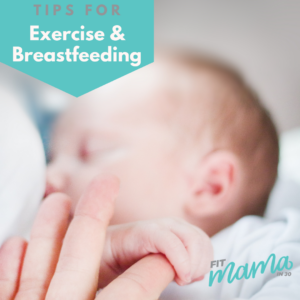6 Ways to Remedy Nausea During Pregnancy
From the mild cases to the downright extreme – we’ve seen it all and we’re here to help with these expert ways.
Oh morning sickness, that lovely nauseous feeling during early pregnancy. It usually starts around the 6th week of pregnancy and (with luck) tends to subside around week 12. And, despite its name, morning sickness can strike at any time of the day or night.
What causes morning sickness or nausea during pregnancy?
Have you found yourself saying, “I hate you pregnancy hormones!” Well, add morning sickness to the list of reasons. While doctors are not 100% sure the exact cause, the most popular theory is the body’s reaction to the pregnancy hormone, human chorionic gonadotropin (hCG), which the body produces at high levels during the first trimester.
Another cause of morning sickness during pregnancy is a reduced blood sugar. This is why we always tell our mamas-to-be, to make sure they are eating regularly to help them stay in front of the nausea. (More on this below)
Will morning sickness go away?
Morning sickness is uncomfortable, unpleasant and definitely unwanted, but as we mentioned above, in most pregnant women it goes away after the first trimester.
But, there is a condition called Hyperemesis Gravidarum (HG) which is an extreme form of morning sickness resulting in severe nausea and vomiting throughout pregnancy. It is very rare and the symptoms are very intense. Some of the symptoms include; nausea that doesn’t subside, severe vomiting, dehydration and losing more than 5% of your body weight due to vomiting. Call your doctor if you are experiencing symptoms of HG.
6 Ways to Remedy Morning Sickness Naturally
While there is no cure for morning sickness, except the passing of time, there are ways you can minimize the symptoms. Check out our top 6 ways to manage your morning sickness symptoms.
Exercising to relieve nausea
Okay, hear us out on this one! While burpees, box jumps and sprints might not be your friend on your most nauseous days, some mamas find that light movement actually helps reduce their nausea.
Instead of focusing on high impact workouts, try light movement and stretches that slow down your breath. Often, when you get nauseous your breathing becomes shallow and fast which is not helpful! By selecting exercises that help you slow down and focus on your breath, you can reduce nausea.
Foods that help remedy nausea
As we mentioned earlier, eating throughout the day can help regulate your blood sugar and calm your nausea. Generally, protein works well, so consider eating a protein source every time you grab a meal or a snack. It’s important to eat foods that you can tolerate and manage. Do the best that you can! On days when you are feeling well, use the opportunity to get in your fruits, vegetables and important nutrients.
Here is a list of our go to foods that help with nausea:
-
Cold Foods– Yogurt, Smoothies, Frozen Fruit
-
Ginger– Try ginger ale, ginger tea, candied ginger, ginger snaps and ginger lozenges.
-
Peppermint
-
Lemon
-
B6 (usually found in prenatal vitamins but you can add an additional supplement)
-
Bland Foods (bananas, rice, applesauce, toast)
Drink Plenty of Water
Getting enough fluids is extremely important, even more important if you find yourself vomiting frequently and feeling dehydrated. Some mamas find that drinking and eating at the same time is too much for their digestive system. If this is true for you, try getting in your fluids between meals. You can also stay hydrated with popsicles, soups, smoothies or shakes.
As mentioned above, cold foods tend to help with nausea so if you find fluids make you queasier, try eating solids with a high water content such as melons and citrus fruits.
Change the Time You Take Vitamins
While most people wake up and takes their vitamins in the morning, the truth is, you need to take them when you are least nauseated. Sure it’s great to get into a routine, however your body truly doesn’t care when it gets its nutrients…it just needs them! If you find your stomach is more settled late in the evening,give your pills a go before you lay down for the night.
Slow It Down
Okay, so we told you to workout to decrease nausea and now we are telling you to slow down?! That’s right! Rushing tends to aggravate nausea. So instead of being quick to jump out of bed or dash around to get ready, give yourself some extra time to slow it down. In the morning, take an extra few minutes to lay in bed and even nibble on a bedside snack before getting up for the day.
Ventilate Your Home
Certain scents and odors can definitely trigger morning sickness. What used to be your favorite scent might now be your biggest trigger. Try to keep fans on and your house ventilated if you find that you are sensitive to certain smells. Or better yet, ask your loved ones to give you some space and start using unscented products.
When to consult with your doctor about morning sickness
A small percentage of women experience Hyperemesis Gravidarum (HG) which is an extreme form of morning sickness. If you are experience the following symptoms, you would want to contact your doctor immediately:
-
Inability to keep down any food or drinks for more than 12 hours
-
Signs of dehydration
-
If you notice blood in your vomit
-
Abdominal or pelvic pain
-
Weight loss of more than 5 pounds
You’re Not Alone!
Morning sickness can be rough! If it’s any comfort, you aren’t alone. As many as 75% of women experience some type of morning sickness during the early stages of pregnancy. While we can’t cure it we can support you!
We have a community full of mamas like you who want to have a healthy and enjoyable pregnancy. And of course laugh at the unavoidable and sometimes unpleasant events that come along the way.
If you are looking for more guidance on nutrition and fitness during pregnancy check out our Prenatal Course.





